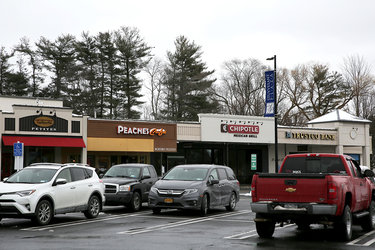County legislature will consider new “restaurant protection law”
ALBANY COUNTY — A law that would prevent third-party food delivery services from advertising a restaurant’s menu and charging an ordering fee without that restaurant’s permission will be introduced to the Albany County Legislature on Feb. 8.
The bill closely resembles a bill that passed the state Senate late last month, and is related to an executive order by County Executive Daniel McCoy being considered as a county law that caps at 15 percent the fees charged by third-party services during a declared emergency, such as the COVID-19 pandemic.
The bill is sponsored by Mark Grimm, a Republican representing part of Guilderland, and co-sponsored by minority leader Frank Mauriello, representing western Colonie.
“As we studied the issue of capping fees for third-party delivery services,” Grimm told The Enterprise, “we realized it was much more complicated than it appears. We discovered that the third-party services don’t need any approval to post the menus of restaurants on their site. That amazed me.”
Grimm said that the law was first proposed as a “request for legislative proposal” and, once it’s introduced on Feb. 8, will be sent to committee.
If passed, restaurants will have the ability to bring third-party companies in violation of the law to court, where those companies can be hit with a civil penalty of up to $1,000 per day in violation.
The state version of the bill passed in the Senate on Jan. 19 by a unanimous vote and awaits a vote by the Assembly.
According to MarketWatch, revenues reported by the top four food-delivery apps — Grubhub, DoorDash, Uber Eats, and Postmates — more than doubled during the pandemic, presumably a consequence of restaurants being closed or limited in capacity combined with stay-at-home orders and personal safety precautions. Revenues increased from $2.5 billion in April through September of 2019 to $5.5 billion in the same period in 2020.
Last year, two restaurants — one in California and the other in North Carolina — filed a class-action lawsuit against Grubhub for allegedly adding 150,000 restaurants to its site without permission, and, in some instances, providing incorrect menu items or prices.
“As it stands right now,” Grimm wrote in statement prior to answering Enterprise questions, “these large corporate delivery services can grab a restaurant’s menu and start advertising them on their own web site, and adding charges for their third-party delivery service … This is an affront to the hard work and risk taking the small restaurateur takes to build their business.”



